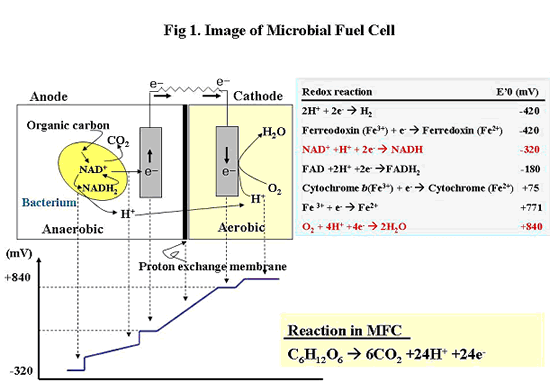
Power Production and Wastewater Treatment of Microbial Fuel Cel
| Tel: +81-(0)11-706-6268 |

 K.M. Chung*
K.M. Chung*
Division of Built Environmental Engineering

Research Theme
A microbial fuel cell (MFC) is a device that uses bacteria to catalyze the conversion of organic matter into electricity. Substrate is oxidized by bacteria generating electrons and protons at the anode. Electrons are transferred through an external circuit while the protons diffuse through the solution to the cathode, where electrons combine with protons and oxygen to form water. It has been found that several microorganisms can produce electricity in the absence of exogenous mediators from chemicals such as glucose, acetate, lactate, pyruvate, and formate. Mixed cultures of bacteria have been also reported to generate electricity from domestic wastewater.
Therefore, it is very important to examine the limiting factors for using MFC as a wastewater device and its optimization conditions. The goals of this study are ⅰ) to confirm the power production and wastewater treatment in anode and cathode compartment by using sludge and ⅱ) to examine of microbial community structure involved in wastewater treatment using the molecular technique of targeting 16S rRNA gene.
The microbial fuel cell used in our experiments is shown in fig. 1.


